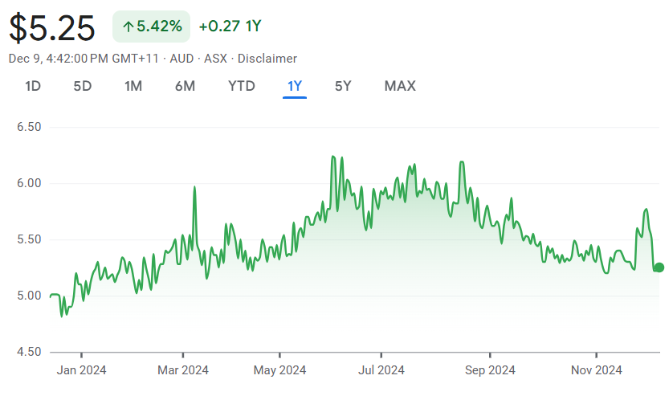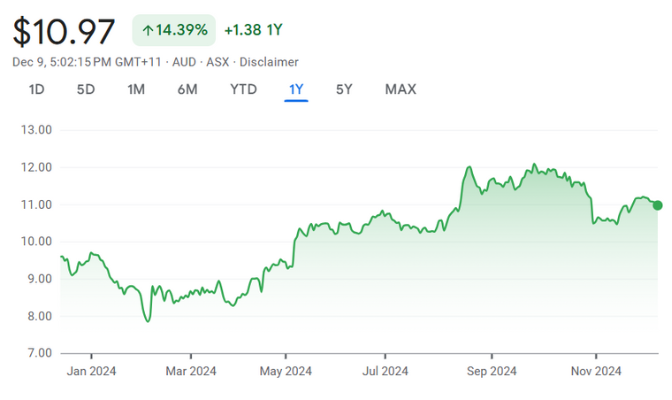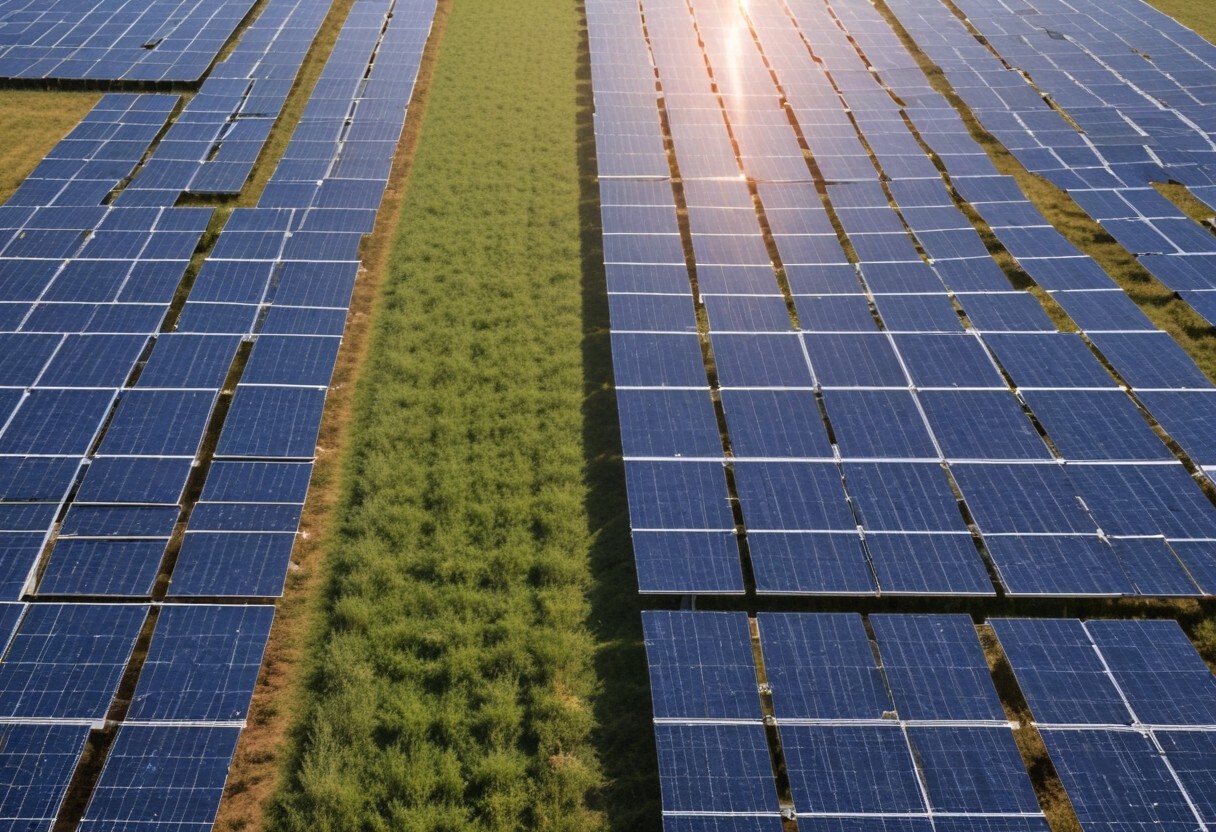What Are ASX Solar Stocks?
ASX solar stocks are the shares of such companies listed on the Australian Securities Exchange involved in investing in solar energy and wind farms. Companies may focus on manufacturing solar panels, development and management of solar and wind farms, or the provision of solar energy solutions for residential, commercial, and industrial purposes. Investing in ASX solar stocks is exposure to the fast-growing renewable sector.
Participant growth is mainly impelled by global drives to cut carbon emissions and shift towards cleaner energy sources. The usual drivers of their performance are determined by government policies, technologies, market capitalization and the increasing conversion to solar energy both domestically and across the globe. Some of the key examples of ASX-listed solar stocks would be Origin Energy, Meridian Energy, Genex Power, and Infratil Limited; each publicly traded company have different levels of exposure to the solar energy industry.
Why Invest in Solar Stocks?
The opportunity to invest in solar stocks seems great since the market cap of renewable energy sector is bound to go upwards owing to the rising demand globally for clean energy and governments supportive policies in this direction. Technological advances regarding solar energy make it more and new energy efficient and less expensive than power generation from fossil fuels. The long-term shift from fossil fuels to renewables promises substantial growth potential for new energy. Besides, Solar Stocks go well with ESG, thus being friendly to socially-conscious investors.
The stock in solar industries would increasingly become attractive on account of the robust growth of the sector. Solar energy has attained a critical mass in Australia next decade-with almost 9 per cent of the nation's electricity now comprised first solar alone-an enviable threshold for the adoption of renewable energies. This growth in solar panel manufacturing is being led by the Australian government through the $20 billion Rewiring the Nation program, among others, in order to upgrade its renewable energy infrastructure. The global solar panel manufacturing industry is set to see 5.1% per fiscal year--on-year growth through fiscal year 2028, an assurance of strong investment and potential growth for solar solar industries stock.
Get the Latest Stock Market Insights for Free with
Stocks Down Under & Pitt Street Research
Join our newsletter and receive exclusive insights, market trends, investment tips, and updates delivered directly to your inbox. Don't miss out – subscribe today and make informed investment decisions.
Key Considerations for Investing in ASX Solar Energy Stocks

Earnings Before Interest, Taxes, Depreciation, and Amortization (EBITDA) Margin
EBITDA margin is an indicator of a company's operating profitability, calculated as EBITDA divided by total revenue. For solar energy companies, a higher EBITDA margin on annual revenue suggests efficient operations and strong profit potential before accounting for interest, taxes, and non-cash expenses..

Cost per Watt
Cost per watt is a very important metric for businesses in the solar industry, as it is an expression of energy efficiency and the cost involved in producing or installing one watt of solar power. The lower costs per watt could be a definite advantage in gaining competitiveness because it would show energy efficiency and give the company an edge in the market-either by offering cheaper solutions or earning money on panels with a high margin.

Net Asset Value (NAV) per Share
NAV per share price is calculated as the total value of a company's assets, minus liabilities, divided by the number of outstanding shares. For solar companies, NAV per share price can provide insight into the components of the company's overall value, including its tangible and intangible assets.

Debt to Equity Ratio
Debt to equity ratio measures the extent of a company's financial leverage. For solar companies, a lower debt to equity ratio is generally preferable, as it indicates the company is less reliant on debt financing, reducing risk in a capital-intensive industry.
2 Best ASX Solar Stocks to Buy Now in 2025

Meridian Energy Limited (ASX: MEZ)
Meridian Energy Limited generates, trades, and retails electricity, and fossil fuels besides selling relevant products and services. Most of the consensus estimates annual revenue are upwards in the period FY2024-FY2025, placing the company in a better position to attract potential investors.

AGL Energy Limited (ASX: AGL)
AGL Energy Ltd is an Australian listed public company involved in both the generation and retailing of electricity and gas for residential and commercial use. It is one of the "big three" retailers in the National Electricity Market. AGL has also signed a 15-year power purchase agreement..
2 Best ASX Solar Stocks to Buy Now in 2025
Pros and Cons of Investing in Solar Stocks
Its great growth outlook sawing into the tectonic shift of the world toward renewable energy sources, in addition to growing demand for more sustainable alternatives, underlines the great investment potential of solar energy. Subsidies, tax incentives, and favorable policies from governments around the world further help make this sector more profitable and enhancing of returns for publicly traded companies in the solar sector. Moreover, investment in solar stocks supports environmental goals by fostering clean energy while bringing in long-term sustainability in line with economic goals. Technological gains in efficiency, on the other hand, are helping performance and cost reduction.
All in all, solar stocks are designed to provide diversity to the portfolios of investors, especially those who would like some exposure to renewable energy. However, investment in this security comes with its risks, including sector volatility driven by market sentiment, changes in regulation, and economic conditions. Then, there are regulatory risks and changes in government policy that can affect profitability. Intense industry competition often works to pressure profit margins.
The fast pace of climate change and technological changes in the industry runs the risk of over time period some technologies becoming obsolete, a time period which could be detrimental if a company remains at the lagging edge of such climate change research. Another issue is that the projects are highly capital-intensive, hence any large-scale investment is extremely risky, especially for firms that are somewhat smaller or less well-established.
How to Choose the Right ASX Solar Stocks?
While selecting the right ASX solar stocks strong buy, one has to assess the financial health of each company depending on the potential growth of revenue and profitability. Also, an assessment of the pipeline projects and their technological capabilities, market trends, and government incentives would come in handy, besides reviewing the experience of the management team.
Check the financial metrics weighted with the associated risks, such as market volatility and changes in regulations, to see if they conjoin with your investment objectives, goals, and risk tolerance. This comprehensive approach will guide you through the realm of solar energy stocks and show you the promising opportunities within the solar industry.
Is Solar Energy a Good Stock Investment?
Solar and first solar panels and energy companies can be good stocks to invest in since they experience tremendous growth potential from the global shift towards renewable energy sources, supported by stimulating government policies and continuing technological advances. Investing in the stock of first solar panel and first solar energy companies affords the investor an opportunity to participate in growing demand for sustainable new energy and solutions and potentially long-term returns on investment.
On the other hand, first solar panels also face the problems of fluctuating markets, altered regulations, and competition. Determination of the same as a consideration for your investment in first solar panels and first solar energy stocks demands assessment of fundamentals of the companies and market trends, which will give an answer to whether such investments are suitable for your own investment objectives, goals and risk tolerance.
FAQs on Investing in Solar Energy Stocks
Solar power is a technology for a clean source of energy that utilizes sunlight converted into electricity through photovoltaic cells and panels, generating direct current electricity. The electricity, with the use of an inverter, from sunlight will then be transformed into alternating current electricity for use in homes and businesses.
Our Analysis on ASX Solar Stocks
10 Best Solar Stocks to Buy in 2025
As the world shifts toward renewable energy, the solar industry has become a key driver of growth and innovation. Solar…
The best Solar Energy Stocks on the ASX in 2023
What are the best Solar Energy Stocks to invest in in 2023? Australia is at the forefront of renewable energy…

